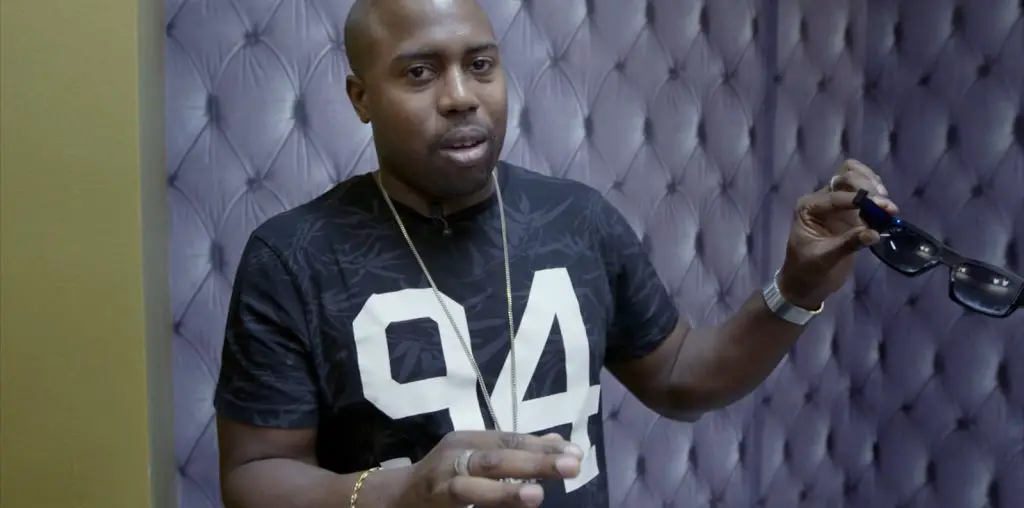
“Resin” is being promoted as (and this is an exact quote) “the 23rd film produced in the world under the conditions set forth by the Danish film collaborative Dogme 95.” For anyone who is curious to see what a Dogme-inspired film is like, I would recommend checking out the other 22 films.
“Resin” is the tale of dreadlocked marijuana peddler named Zeke who gets busted by the cops in a Hollywood Greyhound station. But you know something strange is happening here when the pusher gets caught at a pay phone…hello, but weren’t the entrepreneurial go-getters of the narcotics trade among the first to take full advantage of wireless telephonic technology? Of course, you know you’re in no-budget movieland when the cops are played by two lumpy men in street clothing (hey, cop uniforms cost money to rent!) and their drug-sniffing canine comrade is played by a cute mutt who makes Scooby-Doo look like the Hound of the Baskervilles.
Zeke gets tossed into jail and into a fight in his holding cell. He gets out of jail almost immediately after taking a guilty plea for assaulting an officer and then heads back to the Berkeley area where he can restock his supply and skateboard around selling cannabis to a happy audience of slackers and stoners. Needless to say, Zeke’s detractors in the law enforcement world are not pleased with his return to business and…well, you can probably figure out where this going. Oh, there is also something to do here with California’s three-strikes policy against repeat offenders…but that gets lost in the smoke.
Filmmaker Vladmir Gyorski must have an extraordinary circle of friends, as “Resin” has an uncommonly large cast for a tiny film…mostly playing Zeke’s customers, the stereotypical California surfer dude-and-babe set who equate getting high with being cool. As Zeke, David Alvarado sleepwalks through the film in a slightly disgruntled mood and he has no force of personality to make the audience intrigued or sensitive to his situation. His character is such a low-life loser that it’s surprising anyone would give him the time of day, let alone cash for a joint.
As with other Dogme films, “Resin” has plenty of shaky, grainy handheld camerawork which seems (increasingly) more amateurish than artistic. The film also helps cue the audience to plot points by occasionally flashing helpful titles on the screen (i.e., Zeke arrives at a hitherto unvisited destination and a title reading “John’s House” sneaks into the lower left corner of the screen).
To its credit, though, “Resin” provides a wonderful incentive for those who enjoy smoking marijuana. After sitting through this downer of a film, the first thing any self-respecting stoner would want to do is get high in a hurry.
